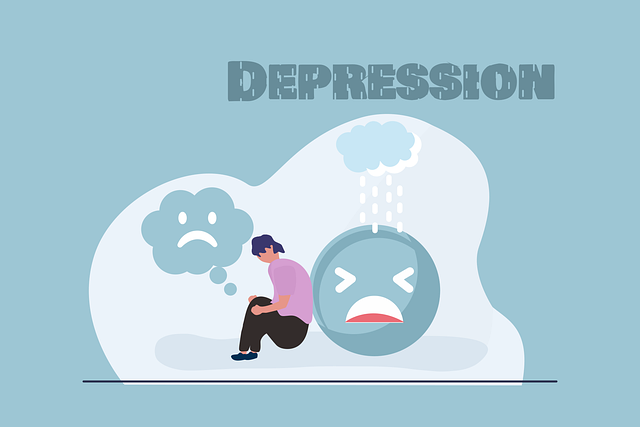Mental health professionals at Lone Tree Hypnosis Therapy face unique challenges like compassion fatigue and complex client trauma, requiring them to prioritize self-care alongside staying current in mental health policies. Their comprehensive risk assessment involves psychological history evaluation, cultural sensitivity, practitioner self-care, and crisis intervention techniques for effective, personalized treatment plans. By integrating hypnosis, open dialogue, and self-awareness exercises, Lone Tree Hypnosis Therapy enhances professional resilience, enables early emotional state recognition, and ultimately improves care quality and patient safety.
Mental health professionals face unique risks that demand specialized attention. This article explores comprehensive risk assessment strategies tailored to their distinct challenges, including understanding specific vulnerabilities and identifying potential threats. We delve into essential components of a robust risk assessment, effective mitigation tactics, and the pivotal role of Lone Tree Hypnosis Therapy in enhancing resilience and managing stress. By implementing these practices, professionals can ensure safer, more secure work environments.
- Understanding Mental Health Professional's Unique Risks
- Essential Components of a Comprehensive Risk Assessment
- Identifying Potential Threats and Vulnerabilities
- Strategies for Mitigating and Managing Risk
- The Role of Lone Tree Hypnosis Therapy in Risk Management
Understanding Mental Health Professional's Unique Risks

Mental health professionals, such as those at Lone Tree Hypnosis Therapy, face a unique set of risks that often go unnoticed. Beyond the typical work-related stress, they encounter complex emotional challenges on a daily basis. Every client story is a new puzzle to unravel, filled with unspoken traumas and hidden fears. This constant exposure to intense personal narratives can lead to compassion fatigue and secondary trauma, where professionals may struggle with burnout or even develop symptoms similar to their clients.
The pressure to deliver effective treatment while adhering to stringent ethical guidelines adds another layer of complexity. Mental wellness is a broad spectrum, and what works for one individual might not be suitable for another. Navigating this landscape demands constant learning, adaptability, and self-care. The onus of staying updated with the latest research in mental health policy analysis and advocacy, coupled with the need to employ effective stress reduction methods, can be overwhelming. As professionals delve into these intricate issues, they must also guard their own mental wellness, ensuring they remain equipped to support their clients effectively.
Essential Components of a Comprehensive Risk Assessment

A comprehensive risk assessment for mental health professionals involves several crucial components that ensure a holistic understanding of patient risks and potential hazards. Firstly, evaluating the client’s psychological history is paramount. This includes delving into past traumas, mental health disorders, substance abuse issues, and any relevant life events or stressors that might contribute to elevated risk levels. At Lone Tree Hypnosis Therapy, we understand the significance of this step in tailoring effective treatment plans.
Additionally, assessing cultural sensitivity in mental healthcare practice is essential. Recognizing and respecting diverse cultural beliefs, values, and practices can significantly impact a client’s comfort, engagement, and overall therapeutic outcome. Incorporating self-care practices for mental health professionals is another vital aspect, as burnout and stress can compromise their ability to provide quality care. Crisis intervention guidance should also be integrated, equipping practitioners with the skills to handle acute situations and deescalate potential risks promptly.
Identifying Potential Threats and Vulnerabilities

Mental health professionals, like those at Lone Tree Hypnosis Therapy, often find themselves in a unique position where they must carefully navigate complex emotional landscapes. Identifying potential threats and vulnerabilities is a crucial step in ensuring the safety and well-being of both practitioners and their clients. These can range from standard stressors like heavy caseloads and long working hours to more nuanced challenges such as cultural sensitivity issues within mental healthcare practice.
In promoting emotional well-being through various techniques, professionals must also be attuned to the potential for burnout, secondary trauma, or even the risk of unaddressed personal vulnerabilities impacting their work. Enhancing emotional regulation skills not only benefits practitioners’ own resilience but also enables them to support clients more effectively in managing and overcoming their challenges.
Strategies for Mitigating and Managing Risk

In the realm of mental health care, risk assessment is an indispensable tool for ensuring patient safety and well-being, especially among professionals who often find themselves navigating complex emotional landscapes. Mental Health Policy Analysis and Advocacy plays a pivotal role in establishing guidelines that support practitioners while mitigating potential risks. One effective strategy, as offered by Lone Tree Hypnosis Therapy, is integrating confidence-boosting techniques into practice. Building resilience and self-awareness through exercises designed to enhance professional well-being can fortify against the challenges inherent in this field.
Additionally, fostering a culture of open dialogue and regular debriefings allows professionals to process stressful experiences and develop adaptive coping mechanisms. By prioritizing Self-Awareness Exercises, therapists can better recognize their emotional states and those of their clients, thereby facilitating early intervention and prevention of potential risks. This holistic approach not only enhances the quality of care but also ensures that mental health professionals remain equipped to handle diverse patient needs safely and effectively.
The Role of Lone Tree Hypnosis Therapy in Risk Management

Lone Tree Hypnosis Therapy plays a pivotal role in risk management for mental health professionals by offering unique tools to support emotional regulation and enhance self-care practices. Through hypnosis, practitioners can access profound states of relaxation, allowing them to process complex emotions and reduce stress levels effectively. This practice cultivates resilience, enabling mental health professionals to manage challenging situations with greater composure and clarity.
Incorporating Lone Tree Hypnosis Therapy into their routines promotes a holistic approach to self-care, which is crucial for maintaining optimal mental wellness. By developing robust emotional regulation skills, therapists can better support their clients while also ensuring their own well-being. This not only benefits the professionals themselves but also enhances the overall quality of care they provide, contributing to the development and implementation of effective Mental Wellness Coaching Programs.
Mental health professionals face unique risks that require a thorough understanding and proactive management. By implementing a comprehensive risk assessment, including identifying potential threats, vulnerabilities, and leveraging strategies for mitigation, practitioners can ensure a safer working environment. Lone Tree Hypnosis Therapy offers valuable tools and techniques to enhance risk management, promoting a healthier and more sustainable practice for these dedicated professionals.









